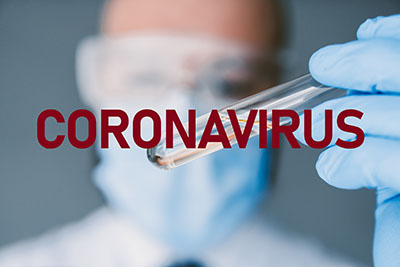
Gov. Ralph Northam today offered the first target date that COVID-19 measures closing non-essential business and banning large public gatherings could be lifted.
An executive order from Northam that goes into effect at 11:59 p.m. Tuesday will remain in effect through April 23, he said today.
The order also closes K-12 public schools for the remainder of the academic year.
The full text of Executive Order Fifty-Three can be found here. Additional guidance and a Frequently Asked Questions guide can be found here.
“This is an unprecedented situation, and it requires unprecedented actions to protect public health and save lives,” Northam said. “I know the next several weeks will be difficult. These restrictions on non-essential businesses will create hardships on the businesses and employees affected. But they are necessary, and we do not undertake them lightly. I am calling on Virginians to sacrifice now, so that we can get through this together.”
K-12 schools
This is probably the biggie. Schools will not be returning to on-campus learning statewide, so parents who have been scrambling for the past week now have the next two months plus summer to account for.
In terms of the learning part of things, the Virginia Department of Education will issue guidance to help divisions execute plans to continue instruction, while ensuring students are served equitably, regardless of income level, access to technology, English learner status, or special needs.
This includes options for additional instruction through summer programming, integrating instruction into coursework next year, and allowing students to make up content.
VDOE will submit a waiver to the federal government to lift end-of-year testing requirements and is exploring options to waive state mandated tests.
Public gatherings
All gatherings of more than 10 people are banned statewide, beginning at 11:59 p.m. Tuesday.
This does not include gatherings that involve the provision of health care or medical services, access to essential services for low-income residents, such as food banks; operations of the media; law enforcement agencies; or operations of government.
Recreation, entertainment businesses
The following recreation and entertainment businesses are considered non-essential and must close to the public beginning at 11:59 p.m. on Tuesday:
- Theaters, performing arts centers, concert venues, museums, and other indoor entertainment centers;
- Fitness centers, gymnasiums, recreation centers, indoor sports facilities, indoor exercise facilities;
- Beauty salons, barber shops, spas, massage parlors, tanning salons, tattoo shops, and any other location where personal care or personal grooming services are performed that would not allow compliance with social distancing guidelines to remain six feet apart;
- Racetracks and historic horse racing facilities;
- Bowling alleys, skating rinks, arcades, amusement parks, trampoline parks, fairs, arts and craft facilities, aquariums, zoos, escape rooms, indoor shooting ranges, public and private social clubs, and all other places of indoor public amusement.
Restaurants, bars
All dining and congregation areas in the following establishments must close to the public beginning at 11:59 p.m. on Tuesday. These establishments may continue to offer delivery and/or takeout services.
Establishments include:
- Restaurants;
- Dining establishments;
- Food courts;
- Farmers markets;
- Breweries;
- Microbreweries;
- Distilleries;
- Wineries; and
- Tasting rooms.
Retail businesses
The following retail businesses are considered essential and may remain open during normal business hours:
- Grocery stores, pharmacies, and other retailers that sell food and beverage products or pharmacy products, including dollar stores, and department stores with grocery or pharmacy operations;
- Medical, laboratory, and vision supply retailers;
- Electronic retailers that sell or service cell phones, computers, tablets, and other communications technology;
- Automotive parts, accessories, and tire retailers as well as automotive repair facilities;
- Home improvement, hardware, building material, and building supply retailers;
- Lawn and garden equipment retailers;
- Beer, wine, and liquor stores;
- Retail functions of gas stations and convenience stores;
- Retail located within healthcare facilities;
- Banks and other financial institutions with retail functions;
- Pet stores and feed stores;
- Printing and office supply stores; and
- Laundromats and dry cleaners.
All essential retail establishments must, to the extent possible, adhere to social distancing recommendations, enhanced sanitizing practices on common surfaces, and other appropriate workplace guidance from state and federal authorities.
Any brick-and-mortar retail business not listed above must limit all in-person shopping to no more than 10 patrons per establishment, adhere to social distancing recommendations, sanitize common surfaces, and apply relevant workplace guidance from state and federal authorities.
If any such business cannot adhere to the 10-patron limit with proper social distancing requirements, it must close.
Additional guidance
Professional businesses not listed above must utilize telework as much as possible. Where telework is not feasible, such businesses must adhere to social distancing recommendations, enhanced sanitizing procedures, and apply relevant workplace guidance from state and federal authorities, including CDC, OSHA, and the Virginia Department of Labor and Industry.
Businesses in violation of this order may be charged with a Class 1 misdemeanor.










